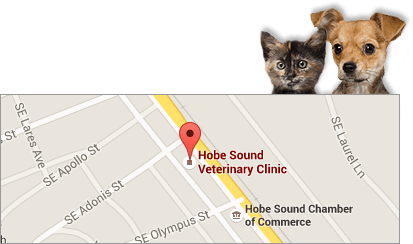You’ve heard of antibiotics—these medicines destroy or stop the growth of harmful microorganisms in both human and animal patients. You may not be familiar with probiotics, though! Although probiotics have been commonplace in human medicine for a while now, the use of probiotics for our furry friends is still a relatively new pursuit. Read on to find out more.
What Exactly Are Probiotics?
A probiotic is a beneficial microbe—a bacteria or yeast—that lives in a pet’s digestive tract (either in the small or large intestine). Think of probiotics as “friendly” microbes that help to keep “bad” microbes at bay. Millions of these organisms live in your pet’s digestive tract, and probiotics work to help digest food, manufacture vitamins and other nutrients, and fight off pathogens. Probiotics can ultimately help the immune system to function better.
Probiotics that are prescribed to pets may take several forms. Some come in a yogurt or kefir product, while some may come in capsule or chew form. Still others are crushed into powder or are included in packaged dog food.
Why Are Probiotics Prescribed to Pets?
In a general sense, probiotics are prescribed to pets to maintain the proper intestinal microbial balance; this means that they help to maintain the balance between healthy and disease-causing microbes residing in your pet’s gut. When this balance is disrupted, your pet may experience diarrhea, cramping, gas, and other digestive-health symptoms. Probiotics help to restore that balance, reducing or preventing symptoms in the long run.
Veterinarians may prescribe a probiotic supplement to a pet in order to help manage or correct infections, parasitic infestations, colitis, or any other health issue that causes digestive disorders. Another common ailment that probiotics may be prescribed to correct is stress—dogs, in particular, may develop diarrhea and cramping as a result of stress, and some studies indicate that probiotic supplementation may work to prevent or at least lessen the problem. While probiotics primarily address digestive issues, it’s important to note that pets can experience a variety of health concerns. For instance, if you’re dealing with a different issue like excessive sneezing, you might find our article on “Help! My Dog Won’t Stop Sneezing” helpful.
Does My Pet Need a Probiotic?
You may be wondering if your beloved animal companion needs a probiotic to live a healthy, happy life. Here’s a general rule to follow: don’t purchase and administer a probiotic to your pet without first consulting your veterinarian. Working together, you and your veterinarian can decide whether or not a probiotic supplement may be beneficial for your pet’s health and well-being.
Our Advice on Probiotics for Pets in 2024
What are probiotics?
Probiotics are beneficial microbes, including specific types of bacteria and yeast, that reside in the digestive tract of pets. They play a crucial role in maintaining digestive health by aiding in food digestion, vitamin and nutrient production, and pathogen defense. These “friendly” microbes help to balance the intestinal flora, ensuring a healthy ratio of good to bad microorganisms. This balance is vital for the immune system’s effective functioning and overall well-being of the animal. Probiotics can be administered in various forms, such as yogurts, capsules, chews, powders, or even incorporated into pet foods.
How do probiotics work?
Probiotics work by introducing beneficial microbes into the pet’s digestive tract, where millions of such organisms naturally reside. These friendly microbes compete with harmful ones for resources and space, effectively keeping the population of disease-causing microbes in check. They assist in digesting food, producing essential vitamins and nutrients, and enhancing the immune system’s capability to fight off pathogens. By maintaining a healthy balance of gut flora, probiotics support the overall digestive health of pets, leading to improved nutrient absorption and reduced symptoms of digestive disorders.
What are some common signs that your pet might have an imbalanced gut flora?
Common signs of imbalanced gut flora in pets include persistent diarrhea, cramping, and gas. These symptoms indicate a disruption in the balance between healthy and harmful microbes in your pet’s digestive system. Other indicators might be frequent bouts of constipation or changes in stool consistency and frequency. If you’re noticing these digestive health symptoms in your pet, it’s crucial to address the issue promptly. At our veterinary clinic in Hobe Sound, FL, we can assess your pet’s condition and discuss whether a probiotic supplement could benefit their health and well-being. Feel free to visit us for a consultation.
Are there risks associated with giving probiotics to pets?
While probiotics are generally considered safe for pets, as with any supplement, there can be risks, particularly if administered without veterinary guidance. In rare cases, pets might experience mild digestive discomfort, such as gas or bloating, when starting probiotics. There’s also a risk of adverse reactions in pets with compromised immune systems or those who are critically ill. It’s crucial to select a probiotic specifically formulated for pets, as human probiotics may not be appropriate. Always consult a veterinarian before starting your pet on probiotics to ensure they are suitable and safe for your pet’s specific health needs.
How long does it typically take for probiotics to start showing benefits?
The time it takes for probiotics to start showing benefits in pets can vary based on the individual animal and its specific condition. Generally, some pet owners may notice improvements in digestive symptoms such as diarrhea and gas within a few days to a week of starting probiotic supplementation. For other health benefits, such as enhanced immune system function or overall digestive health improvement, it may take several weeks to observe noticeable changes. Consistent daily administration is key to achieving the best results. Always consult with a veterinarian to monitor progress and adjust dosages as necessary.
Do you have more questions about probiotics and your pet? Call us, your local animal clinic in Hobe Sound, FL today! We offer a range of specialized services to address various pet health concerns. If you’re dealing with skin issues or allergies that might be related to digestive health, our Pet Allergies and Veterinary Dermatology service can provide comprehensive care for your furry friend.




